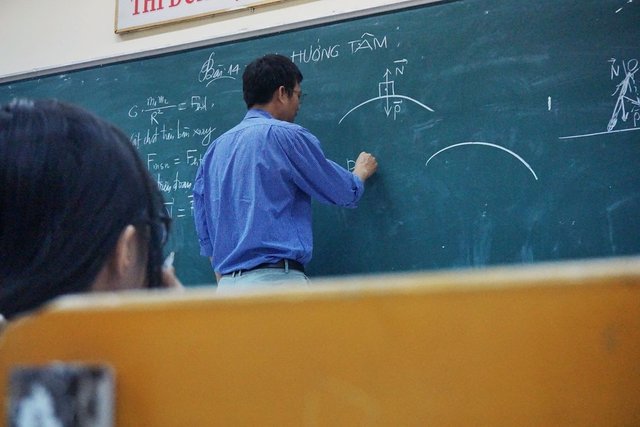Teaching others will help you learn (The protégé effect)

“Docendo discimus” (by teaching we learn), said the Roman philosopher Seneca “the Younger”, more than 2000 years ago.
Nowadays, we are more than sure that the statement is true, and science supports it. In this article we will go over one of the benefits of teaching, and how it can help teachers and students to help others, and learn more as a side effect.
Most of us are very attached to the fact that the only way of being an expert at any subject is by studying and practicing a lot. However, the range of learning methods turns out to be very wide and variable. Of course, we will need to study and use the scientific method to learn about any subject we want to master, but within this wide range of ways to learn, teaching is very special, because you can provide others with useful information, and at the same time you will be brushing up on the skills you are learning. Maybe, this is the reason why as a child, we got impressed at school because of the fact that our teachers always remembered everything and were so fast at correcting our exams.
The name given to this amazing learning behavior is “The protégé effect” which remarks that the best way to understand a concept is to explain it to someone else.
A study made in Norway in 2007 concluded that first-born children are more intelligent than their later-born siblings, because of the time they spend in teaching abilities and knowledge to their younger siblings.
We show that intelligence quotient (IQ) score levels among nearly 250,000 military conscripts were dependent on social rank in the family and not on birth order as such, providing support for a family interaction explanation.
Technology sheds light on the way

Betty’s brain is an artificial intelligence software, which plays the role of a student by learning everything that is taught to her. This computer-based learning environment, even asks questions as if it were a real student. The goal of the students is to learn about a subject and make the bot Betty understand and learn about the given subject. This initiative was created at Vanderbilt University by the Teachable Agents Group in 2005, and from there, the “pupil bot” has been taught by children and became smarter as it absorbed student’s knowledge.
A study published on the Stanford online library concludes:
"Perhaps having a teachable agent invokes a sense of responsibility that motivates learning, provides an environment in which knowledge can be improved through revision, and protects students' egos from the psychological ramifications of failure."
Greater responsibility when teaching others

“When compared to learners expecting a test, learners expecting to teach recalled more material correctly, they organized their recall more effectively and they had better memory for especially important information,”
-John Nestojko, PhD, and postdoctoral researcher in psychology in Arts & Sciences at WUSTL
That was the conclusion of a study published in the journal Memory & cognition based on a series of reading-and-recall experiments in which several students are told they will be teaching other students about the given topic, and another group is told they are going to take a test on the same subject. Adults and children are more likely to learn just by the simple fact that they are going to teach someone else.
This is very interesting because it shows how the value of responsibility (and maybe competitiveness) is present in humans and by the sole fact that they are going to teach someone else, their mindset changes and becomes more focused
Does not only work at school!

Since this seems to be a general human behavior, it also tends to work in a more professional setting and can be applied by workers in their work place. Many say "Wisdom comes with age", and up to a certain point this is true. Sometimes studying is not enough, and experience provides you even more than you learned for years at school. And what is better than teaching others at work to brush up the things that you’ve learned?
In a study published on Sage journals in 2005, 20 managers were interviewed, each lasting between 8 and 10 hours where more than 250 stories were acquired.
” The great learning potential inherent in teaching would appear as the result of a particular aspect of the teaching process itself: the encounter with diversity, which on the one hand tends to increase reflexivity while on the other hand tends to break down resistance to change.”
This study shows how managers didn’t only teach other, but also had to recognize their mistakes.
” Teaching also proved to be an important opportunity for recognizing one's own ignorance and thereby rendering oneself open to the possibility of learning.”
Conclusion
We humans tend to internalize what surround us; what we feel, what we see, what we read, etc., When we are teaching, we are actually having a conversation with one or more people, and for our brain this is a lived experienced which we are more likely to remember. Also, while we are repeating what we learned to others, we are reviewing the information and therefore memorizing it and realizing about our mistakes. This is why teachers don’t forget what they learned at university.
In this video created by VOA news you can see how Rico, an 11th grade student from Washington teaches younger kids in an elementary school, and reinforces his knowledge at the same time by recapping what he learned. (external link to avoid copyright)

From my personal experience, I’ve learned a lot since I started teaching and writing science topics on Steemit. You can try it too and teach others to make sure you remember what you’ve learned. Thank you for reading my post, I hope you learned something new :)!
Images:1,2,3,4.
Sources:
Protégé effect explanation.
IQ difference between younger and older siblings.
Learning by teaching.
Students learning through a teachable software.
Expecting to teach enhances learning and organization of knowledge
Workers take the role of teachers within their organization
Learning by Teaching and Learning by Assessment (field study in the classroom)

Yes I find this effective too when teaching or learning. When we teach others we tend to retain the information more than just reading about it. :D
You are right! It's basically a good way to retain information without getting bored and helping others at the same time :D
Hello @ ralk98, it is interesting to know that this activity that I put into practice with my students has a name (protected effect), I always put it into practice with my students, I knew that if they gave the class or chose a classmate to teach it, they would learn plus. I remember when I was in college that one of my teachers put us to explain the problems of mathematics, with the intention of organizing more knowledge; but, he said that we never did it when we were a few hours of examination, because on the contrary, (he forgot everything).
It is nice that you use an innovative method to teach your students, thank you for passing by!
Nice content. Lot of hard work.
Thanks. You might want to read it before commenting though, this can be useful for you :)
This is something I can relate to as even comments made on your post can open your eyes to a whole new idea and you add to your knowledge. This is why in schools, group teaching are highly recommendable.
Great post man.
Yes, feedback is very important. Thanks for reading !
nice article
thanks
Teaching without doubt reinforces the knowledge acquired. And it's a way to contribute to something great, and that marks the story of many. Technological advances are examples of this, the more they create, the more interested man is and wants to learn and teach. Good subject, here is reciprocity.
You are right, cheers!
Ya los admiraba por tan buena memoria, pero claro que tenía su explicación! muy buen post!
Gracias :)